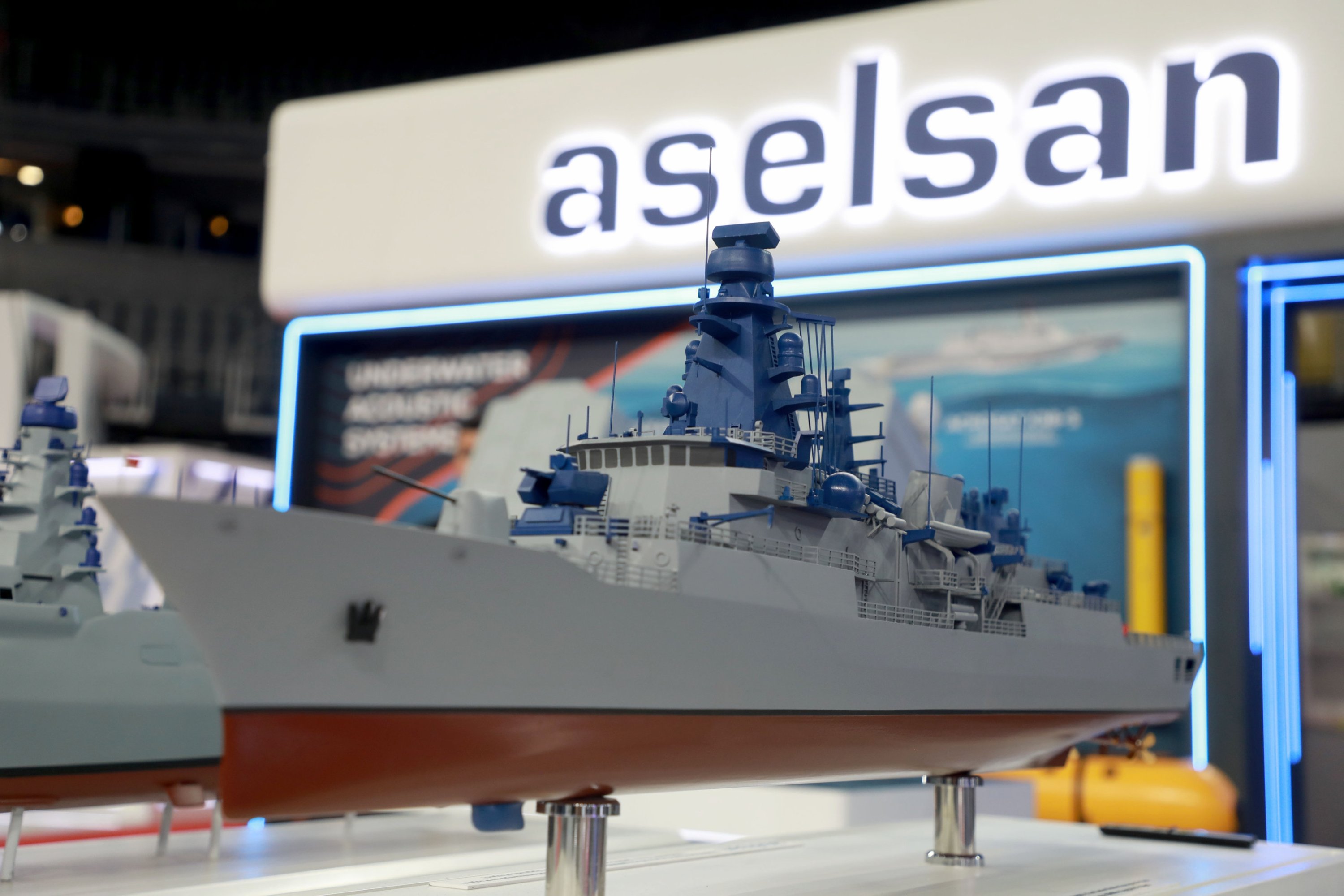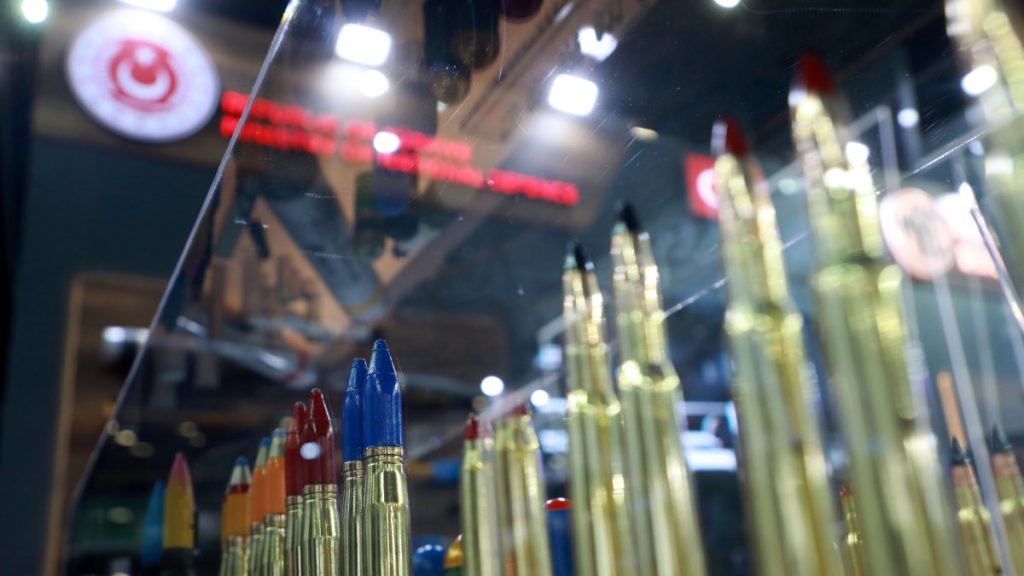Türkiye has emerged as a prominent player in the global defense industry in recent years. Countries from numerous continents have imported Turkish defense products and incorporated them into their military inventories. According to international estimates, Türkiye has developed the world’s 10th-largest defense industry and is simultaneously modernizing the Turkish Armed Forces (TSK), which ranks ninth globally in military power.
This process, initiated to promote domestic production and technological advancement, has created a trade network stretching from Asia to Latin America. While this development has refreshed the global image of the Turkish military, the Turkish defense industry has become a recognized brand in air, naval and land systems. As a result, Türkiye has now surpassed countries like the Netherlands and Poland to become a net defense industry exporter.
Buyers from all parts of world
Countries from the Americas such as the U.S., Chile, Brazil and Ecuador, to Europe such as the U.K., Italy, Spain, Poland, Slovenia, Croatia, Albania, Kosovo, North Macedonia, from closer allies and neighbors such as Azerbaijan, Kazakhstan, Pakistan and Iraq, to the farthest ones such as Indonesia, Malaysia and the Philippines have recently imported Turkish defense industry products and significantly contributed to strengthening their defense infrastructures. A similar trend is also observed in countries such as Egypt, Ethiopia, Sudan, Tunisia, Libya and Niger.
The Chilean Navy has procured systems from HAVELSAN, while Italy is preparing to import unmanned aerial vehicles (UAVs) from Türkiye. Croatia is seeking Turkish products to enhance its border security. Kazakhstan imports armored vehicles from Türkiye, and similarly, Ecuador is equipping its special forces with Turkish armored vehicles. Poland actively uses Bayraktar TB2 drones for border security missions. The Philippines has purchased ATAK helicopters to bolster its air force. Malaysia is preparing to acquire corvettes as part of the MILGEM projects. Pakistan is both importing and commissioning the construction of naval vessels currently in the inventory of the Turkish Navy. Albania, Kosovo, and North Macedonia are opting for Turkish defense products to modernize their armed forces.
How Turkish industry grows
There are several reasons behind the growing global demand for Turkish defense industry products. Massive investments have been made over the past half-century to modernize the Turkish Armed Forces and enhance their strike capabilities in line with contemporary requirements. Since the Cyprus Peace Operation in 1974, Türkiye has achieved a total of $50 billion in defense exports. Over 80% of the TSK’s needs are met through domestic companies, which has resulted in substantial cost savings. These savings have been redirected to investments in other areas, contributing to the country’s economic development.
Considering that Türkiye’s total annual military expenditure has reached $45 billion, the scale of these figures becomes even more apparent. For instance, in 2024, Türkiye attracted over $12 billion in direct foreign investment. The total foreign investment volume peaked at $270 billion. It is estimated that around 90,000 foreign companies, which employ approximately 2.7 million people and account for a significant portion of exports, are currently operating in Türkiye. From this perspective, the domestic significance of the Turkish defense industry becomes clearer.
The total volume of defense projects has exceeded $100 billion, and the industry’s annual revenue has reached $16 billion. As of 2024, more than 3,500 companies are active in the Turkish defense sector. With an annual R&D expenditure capacity exceeding $2.8 billion, the industry conducts more research and development than many individual states. In the same year, a record-breaking $7.15 billion in defense exports was achieved, with the figure rapidly approaching the $10 billion mark. Since 2002, the defense industry has stood out as one of the sectors with the most significant increase in Türkiye’s export portfolio. Over the past 22 years, total defense exports have increased by approximately 2785%. At the core of this success lies the construction of a domestically driven Turkish Armed Forces.
Open to partnership
Another key reason behind the significant international interest in the Turkish defense industry and the high demand for its products is the proven success of these systems on the battlefield. Developments in Syria, Iraq, Ukraine, Ethiopia, Sudan, Azerbaijan and Libya – and the effectiveness demonstrated by Turkish defense products in these regions – have had a profound impact on many countries.
In addition, Turkish defense firms, both public and private, have shown a more constructive history and approach to technology sharing and joint production compared to many Western counterparts. For instance, TAI, HAVELSAN, ROKETSAN and ASELSAN have taken steps to support the development of Egypt’s defense industry. In the coming years, similar to the growing commercial relations between Türkiye and Egypt, more examples of joint production initiatives may emerge. One notable example could be the coproduction of unmanned aerial vehicles (UAVs) with Egypt. It is also known that countries like Saudi Arabia, the United Arab Emirates (UAE) and Qatar are interested in coproducing defense products with Türkiye. Eastern European countries such as Romania and Poland have also expressed similar interests and initiated discussions.

Newest products attract attention
Beyond UAVs, there is growing international interest in advanced Turkish defense projects like the next-generation fighter jet KAAN and the unmanned fighter aircraft Kızılelma. In the near future, just as the TSK has risen in global military rankings, the Turkish defense industry is expected to climb more rapidly in the global defense hierarchy. According to international rankings published by SIPRI, the Turkish defense industry has already secured the 10th position among the world’s top 10 largest defense industries.
The T.C. Anadolu, T.C. Trakya, and MILGEM warships are critical projects that aim to position the Turkish Naval Forces Command as a global actor. Considering the production capacity and competitive edge of Türkiye’s manufacturing industry, these projects are far from coincidental – they indicate a deliberate effort to build a globally scaled naval power. Following recent developments in the Eastern Mediterranean, warship projects have gained momentum and are increasingly being equipped with domestically produced precision technologies. Leading the way is Turkish Aerospace Industries (TUSAŞ), along with more than 3,500 defense industry firms, collectively employing nearly 100,000 people, contributing to the rise of a next-generation defense ecosystem.
As a result of this growth, approximately 40% of Turkish defense exports are directed to countries in Europe and North America. Contrary to popular belief, one of the largest export markets for the Turkish defense industry is the U.S. In addition, Türkiye receives an average of over $20 billion in defense orders annually. This figure was even higher in 2024 and is expected to reach a historic record level in 2025.
A new phase has been marked by the approval of the Italian government for a purchase agreement between Baykar Technologies and Piaggio. With a legacy spanning 140 years, Piaggio’s strong industrial base could serve as a major pillar in the coproduction of next-generation aerial platforms – an important reflection of the growing Turkish-Italian defense cooperation. Alongside countries such as Romania, Poland, Croatia, Spain and North Macedonia, Italy’s collaboration with the Turkish defense sector can be seen as part of a broader effort to build a global-scale brand and value, something that could be described as the realization of a long-held Turkish dream.


